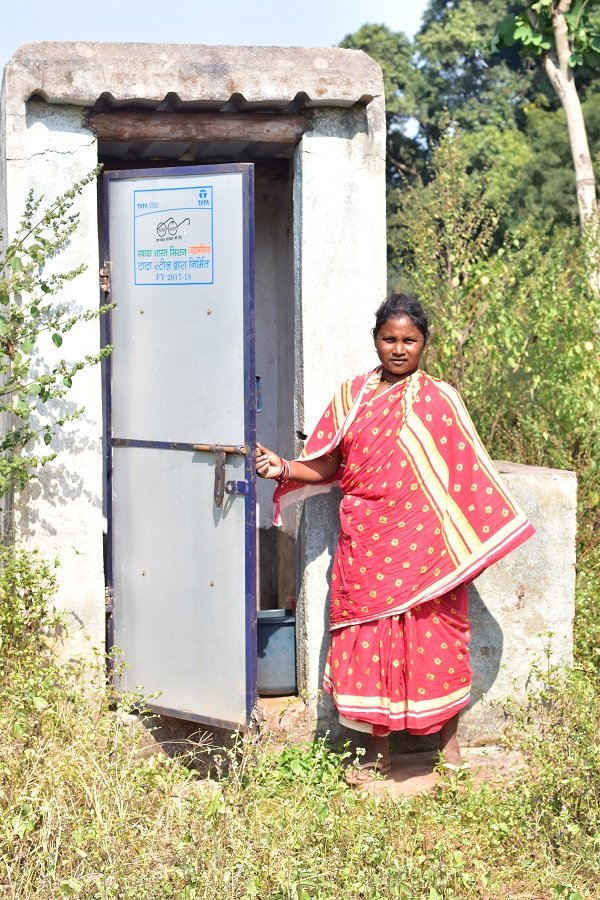JODA: Sustainable sanitation and proper hygiene are crucial factors for maintaining the health of any community. However, in several rural areas, access to a decent toilet is considered a luxury and open defecation is still rampant. This was the case in the rural clusters surrounding Katamati region situated in Keonjhar district of Odisha, until Tata Steel Foundation constructed over 210 toilets in households, thus giving access to safe sanitation for over 210 families from the community.
The work for constructing these toilets, which are also known as Individual Household Latrines was started in the year 2017. Tata Steel Foundation identified several hamlets in the rural areas of Keonjhar district, where locals did not have access to safe and hygienic sanitation. Due to unavailability of toilets, many of the locals would defecate in the open.
To solve this issue, Tata Steel Foundation started the project of constructing toilets by initially constructing over 93 toilets in Thakurani village. Later, 33 more toilets were constructed in Daladiri hamlet of Deojhar village and currently 135 toilets are being constructed in Murgabeda Hamlet of Deojhar village of which 90 have been completed. Moreover, these toilets make use of two soak pits for managing the waste, making them sustainable.
Sukanti Nayak, a local of Thakurani village says, “Before these toilets were constructed by Tata Steel, we had to walk a lot to find an isolated place in the open for defecation. The situation used to get even worse during the rainy season and the practice of open defection was highly unsafe and unsanitary for women.” Sukanti is just one of the several women from the community who now has access to good sanitation.
The benefits of improving sanitation are also recognised by the United Nations, and to further this, World Toilet Day is celebrated on November 19 to raise awareness on the importance of having access to safely managed sanitation. This year the theme for celebrating World Toilet Day is ‘Sustainable Sanitation and Climate Change’. This is in accordance to achieve the sustainable development goal of ‘Water and Sanitation for All’ set by the United Nations.

























